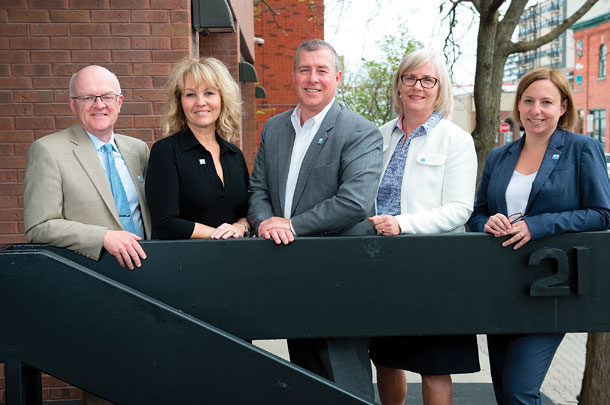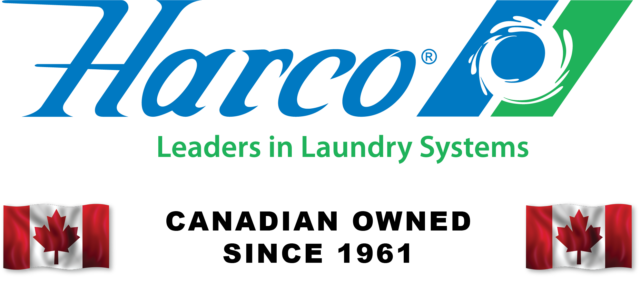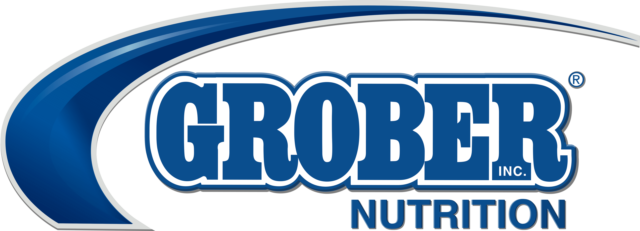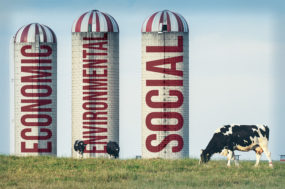Some of these changes have been visible, others less so, but they are all contributing to making DFC a modern organization, equipped to face significant challenges and seize opportunities for the sector.
Lucie Boileau, a former reporter and director of communications at DFC, sat down with the CEO, Jacques Lefebvre, to further explore the underpinnings of DFC 2.0.
BOILEAU: DFC 2.0 was initiated about a year ago; where are we on the modernization of the organization?
LEFEBVRE: One of the drivers for DFC 2.0. was to put dairy farmers back in the driver’s seat, and we have done this in many ways. First, from a funding perspective, only part of the levees are now going to DFC core services.
The other resources (strategic funding) are assigned to the industry objectives determined by the P10 chairs and the DFC board of directors. These objectives are determined on an annual basis.
BOILEAU: You mentioned core services. What are the activities in this category?
LEFEBVRE: They include our staff and activities in government relations, communications, trade, issues management, legal, policy, nutrition, research, partnership agreements and the blue cow Masterbrand program.
BOILEAU: Evolving to DFC 2.0 is more than just the funding of the organization?
LEFEBVRE: Absolutely! We did reassess our activities and staff contingent to reflect our new funding reality in 2018. This required us to “right-size” the organization to ensure we had the staff contingent aligned with our revenues.
Then we asked ourselves if we had the right people in the right positions, given we were embarking on a modernization exercise. This was a “right-fitting” exercise.
The elected have also been engaged in a governance review; any lasting change at DFC resides in an effective governance.
BOILEAU: Is this what led to the hiring of some new faces at DFC?
LEFEBVRE: Clearly, we had to do a gap analysis between the strengths we already had internally – to navigate DFC 2.0 through a period of change – and the skills needed to address the external challenges we are facing (trade, government policies, consumer trends, etc.), while at the same time [be] able to be innovative and strategic. In 2018, our senior team went from nine to five.
BOILEAU: Who is part of DFC 2.0’s executive team?
LEFEBVRE: First, we recruited a chief operating officer, Paula Dunlop. Among her responsibilities, she leads our operations, but in particular, [is] the important development of industry objectives and the strategies to achieve them.
She held a similar position in the gas industry association and worked previously for the fertilizer institute. Then there is Sylvie Larose, our vice president of finance. She has been with DFC for over 20 years and is our corporate memory.
She is an accountant and previously worked as an auditor for one of Canada’s biggest accounting firms. She holds the purse strings very tight.
Bobby Matheson, our vice president of advocacy, joined us last fall from the public service, where he held several senior executive positions. He began his career in the agriculture department where he worked on various agricultural files, as well as dairy.
Matheson was raised on a dairy farm in Prince Edward Island.
Finally, our latest addition to the team is our vice president of marketing and business stakeholder relations, Pamela Nalewajek. She comes to us from Saputo Dairy Products Canada where she led marketing and strategic business development, as well as cheese import quotas for many years.
As a senior staff member, she brings unprecedented insight into the dairy value chain, its practices and its players.
BOILEAU: With such diverse backgrounds, what unites such a group?
LEFEBVRE: You are right, we do have diverse work experiences, but that is an asset for our industry. I would capture what unites us in three areas.
First, we have all chosen to leave good positions to work for dairy farmers and represent their interests. Second, each individual was selected for their appetite and abilities to address challenges. With the current environment, working at DFC is not for the faint of heart. Third, they all understand the power of the collective in dairy, and they want to contribute to strengthen it.
BOILEAU: I want to go back for a moment on the changes. What is the key ingredient you see as essential to see the transformation of DFC into DFC 2.0.?
LEFEBVRE: The board of directors asked me to address some of the key issues facing our operations, namely putting in place a modern and inclusive objective-setting process for the industry – a process led by dairy farmers. They also asked the objectives be accompanied by robust measurements, so the return on investment for dairy farmers’ dollars could be clear.
As I indicated earlier, they also asked we align our structure to our financial resources. Lastly, the board wanted DFC to seize every opportunity to build bridges within our community, but also with key stakeholders.
The board had a clear vision as to what it wanted as part of a new approach at DFC. Our team had to develop the plan to get us there. Although our board members have had tough questions for us, and even pushback at times, I have never felt they weren’t 100% behind the need for positive change.
To [answer] your question: The most important ingredient is for the board to continue to support DFC 2.0, while continuing to challenge the team and ask the hard questions.
BOILEAU: In closing, in your view, what is the biggest challenge facing the industry?
LEFEBVRE: I asked a similar question to our President Pierre Lampron before joining DFC.
He told me at the time that he thought it resided in ensuring we can strike a careful balance between being able to adapt in a timely fashion to the changes brought about by a dynamic environment while maintaining the collective, that is, ensuring dairy farmers speak with one voice.
After 18 months on the job, I can now fully appreciate the breadth of his words. ![]()
PHOTO: Dairy Farmers of Canada’s executive team includes, from left to right, Bobby Matheson, vice president of advocacy; Pamela Nalewajek, vice president of marketing; Jacques Lefebvre, CEO; Sylvie Larose, vice president of finances; and Paula Dunlop, COO. Photo courtesy of DFC.
Founded in 1934, Dairy Farmers of Canada (DFC) is the national organization which defends the interests of Canadian dairy farmers and strives to create favourable conditions for the Canadian dairy industry. Working in accordance with supply management principles, DFC promotes safe, high quality, sustainable and nutritious Canadian dairy products made from 100% Canadian milk through various marketing, nutrition, policy and lobbying initiatives. Driven by a strong sense of community and pride, DFC and Canadian dairy farmers actively support a number of local and national activities. Visit dairyfarmers.ca for more information.









